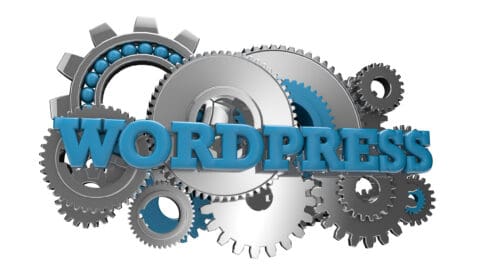A Guide to Choosing the Right Service for You
When it comes to website hosting, your choice matters. Every business has different hosting requirements, so it’s important to make an informed decision when selecting a hosting provider. This guide will help you navigate the key considerations of finding the right service for you and your website.
What is Website Hosting?
Website hosting is the process of storing and serving files for a website. In other words, it’s the online space where you store your website’s content and files. When someone visits your website, their browser downloads the necessary files from the hosting server to display the site correctly.
Types of Hosting Services
When it comes to website hosting, there are several different types of services available. Depending on the type of website you have and your hosting needs, you may need to select from one or more of these options:
- Shared Hosting: With shared hosting, multiple websites are hosted on the same physical server. It’s the most cost-effective option if you don’t have high-performance requirements and need to save on costs.
- VPS Hosting: Virtual Private Server (VPS) hosting gives you more control over the hardware resources allocated to your website. It’s a good mid-range option for businesses with larger websites and more traffic.
- Cloud Hosting: Cloud hosting is a flexible and scalable solution that uses a network of virtual servers to host your website’s files. It’s an excellent choice for websites with variable traffic levels and high-performance requirements.
- Dedicated Hosting: With dedicated hosting, you have an entire server dedicated to your website. This is the most expensive option but provides the highest level of control, performance, and security.
Key Considerations for Choosing a Hosting Provider
When selecting a hosting provider, there are several key considerations to keep in mind:
- Reliability and Uptime: Your website needs to be available to visitors at all times. Look for a provider with a high uptime guarantee and reliable servers.
- Backup and Disaster Recovery: In the event of a server crash or data loss, it’s crucial to have backups in place. Choose a provider that offers regular backups and has a disaster recovery plan.
- Scalability: As your website grows, you may need to upgrade your hosting plan to accommodate increased traffic and resources. Make sure your chosen provider offers easy scalability options to adjust resources as needed to avoid any potential downtime or performance issues.
- Security: With the increasing number of cyber threats, website security is a top priority. Look for a hosting provider that offers robust security measures such as firewalls, regular software updates, and SSL certificates.
- Customer Support: It’s important to have reliable customer support available in case you encounter any issues with your hosting service. Look for a provider with 24/7 support and multiple channels of communication.
- Speed and Performance: A slow-loading website can negatively impact user experience and search engine rankings. Make sure your hosting provider has fast servers and offers caching options to improve website performance.
- CDN and Server Location: Content Delivery Networks (CDNs) can help improve website speed by delivering content from servers closer to your visitors. Consider a provider with multiple server locations for optimal performance.
- Reporting and Analytics: It’s essential to have access to website analytics and data on server performance. Look for a provider that offers reporting tools or integrates with third-party analytics platforms.
- LEMP Stack: LEMP (Linux, Nginx, MySQL, PHP) is a popular server configuration for hosting dynamic websites. Check if your provider supports this stack or offers similar alternatives.
Conclusion
Choosing the right website hosting service is crucial for the success of your online presence. By considering factors such as reliability, support, and performance requirements, you can make an informed decision that best suits your website’s needs. Remember to regularly review and reassess your hosting service as your website grows and changes over time. So, be sure to do thorough research and choose a reputable provider that can accommodate your current and future hosting needs. With the right hosting service, you can ensure a seamless online experience for your visitors and help your business thrive in the digital world.
So, take your time and make a well-informed decision when it comes to selecting a website hosting provider. Your website’s success depends on it! However, do keep in mind that the choice of hosting service is not permanent and can always be changed if necessary in the future. Continuously evaluating your hosting needs will help you stay on top of any changes and ensure that your website remains accessible, secure, and high-performing. With the right hosting service, you can focus on creating and growing your online presence without worrying about technical issues. So, take the time to choose wisely and enjoy a hassle-free online experience. Happy hosting! [Note: This is not legal advice; always consult a professional for legal matters.]



